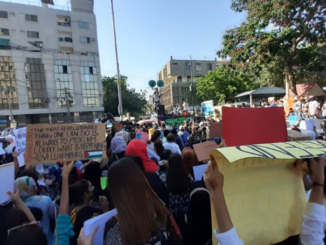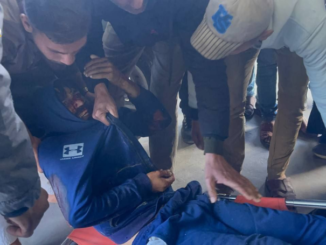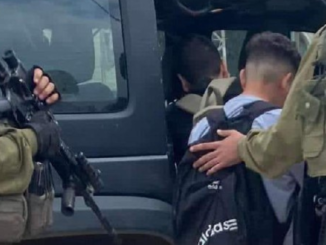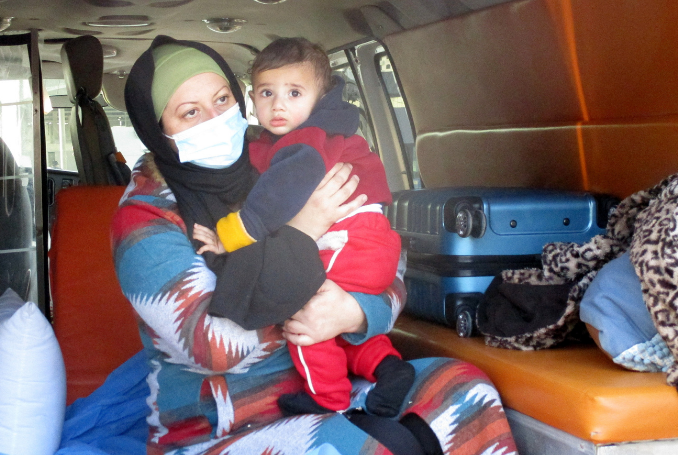
“We`re waiting for a cancer patient from Jenin so we can deliver him to Augusta Victoria Hospital on Mount Scopus in East Jerusalem,” said the member of the Jerusalem Red Crescent medical team while waiting in their parked ambulance on the roadside of the Israeli military checkpoint at Qalandiya.
I waited with them.
We waited for a long time. We spent the time talking about various issues pertaining to their difficult mission, including when Palestinian patients are transferred between ambulances, about the vaccinations, and more.
But nothing prepared me for the fact that the cancer patient we were waiting for was an 11-month-old baby.
Furath, gravely ill with cancer, was taken out of the ambulance in his mother’s arms, his scrawny arm pierced by a plastic tube where the IV entered his little body.
Present were the two Palestinian medical teams – one from Jenin and one from East Jerusalem, the two ambulances, two stretchers, Israeli soldiers and security guards, guns, and in the midst of all of these – a sick baby and his mom.
The military procedure was followed strictly, including the baggage inspection. The mother had to hand Furath over to a member of the medical team and present the content of her bags to a soldier.
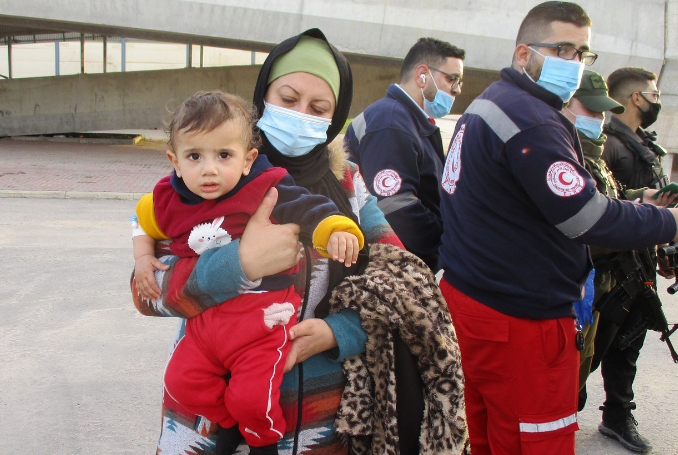
While I do not accuse the military occupation of Furath’s cancer, as such illnesses are often the matter of fate, the occupation is still guilty; guilty of forcibly taking a little baby and his mother away from their city, isolating them from their own family, separating between a gravely ill child and his father, who was unfairly denied permit to accompany his wife in this painful journey.
Though there are hospitals in the West Bank and the Gaza Strip, operated by impressive and capable medical teams, the Israeli so-called Civil Administration blocks the passing of vital medical equipment, required for radiation treatment. This is why Furath and his mother are waiting at the checkpoint. Without this difficult and dangerous journey, Furath’s fate, like many before him, would be sealed.
Further along the way, beyond the Apartheid Wall, opposite the Qalandiya refugee camp, a taxi driver told me that he has seen me come there for years now, taking pictures, asking questions, listening, and saying that I write about the occupation. “But does any of this help?” he asked, inquiringly or doubtfully. “Does anything ever change around here?”
As I pondered my answer, I felt that there is a truth that cannot be masked or denied. Here, not only does the situation constantly worsen, but despair deepens as well.
Then I carried on reporting on the injustices of the occupation as I always have.
(Translated by Tal Haran)
(All Photos: Tamar Fleishman, The Palestine Chronicle)
– As a member of Machsomwatch, Tamar Fleishman documents events at Israeli military checkpoints between Jerusalem and Ramallah. Her reports, photos and videos can be found on the organization’s website: www.machsomwatch.org. She is also a member of the ‘Coalition of Women for Peace’ and a volunteer in ‘Breaking the Silence’. She is a regular contributor to The Palestine Chronicle

